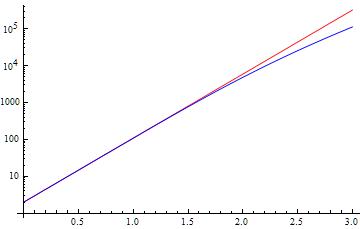Here a simple example. You may proceed as follows. Work with restricted series, not going to infinity.
hrule = h -> Function[x, Sum[a[j] x^j, {j, 0, 10}] + O[x, 0]^11]
c h[x] /. hrule
(* c a[0] + c a[1] x + c a[2] x^2 + c a[3] x^3 + c a[4] x^4 +
c a[5] x^5 + c a[6] x^6 + c a[7] x^7 + c a[8] x^8 + c a[9] x^9 +
c a[10] x^10 + O[x]^11 *)
Apply it to the differential equation, let c be c==4.
eq = D[h[x], x] - 4 h[x] == 0 /. hrule // Simplify
(* (-4 a[0] +
a[1]) + (-4 a[1] + 2 a[2]) x + (-4 a[2] + 3 a[3]) x^2 + (-4 a[3] +
4 a[4]) x^3 + (-4 a[4] + 5 a[5]) x^4 + (-4 a[5] +
6 a[6]) x^5 + (-4 a[6] + 7 a[7]) x^6 + (-4 a[7] +
8 a[8]) x^7 + (-4 a[8] + 9 a[9]) x^8 + (-4 a[9] + 10 a[10]) x^9 + O[x]^10 == 0 *)
LogicalExpand gives conditions for every power of x.
le = LogicalExpand[eq]
(* -4 a[0] + a[1] == 0 && -4 a[1] + 2 a[2] == 0 && -4 a[2] + 3 a[3] == 0
&& -4 a[3] + 4 a[4] == 0 && -4 a[4] + 5 a[5] == 0
&& -4 a[5] + 6 a[6] == 0 && -4 a[6] + 7 a[7] == 0
&& -4 a[7] + 8 a[8] == 0 && -4 a[8] + 9 a[9] == 0
&& -4 a[9] + 10 a[10] == 0 *)
Solve this together with the initial conditions h[0]==2 to get all a[i].
sol = Solve[le && (h[x] /. hrule /. x -> 0) == 2,
Table[a[i], {i, 0, 10}]]
(* {{a[0] -> 2, a[1] -> 8, a[2] -> 16, a[3] -> 64/3, a[4] -> 64/3,
a[5] -> 256/15, a[6] -> 512/45, a[7] -> 2048/315, a[8] -> 1024/315,
a[9] -> 4096/2835, a[10] -> 8192/14175}} *)
The approximating function is then
hsol[x_] = h[x] /. hrule /. First@sol // Normal
(* 2 + 8 x + 16 x^2 + (64 x^3)/3 + (64 x^4)/3 + (256 x^5)/15 + (
512 x^6)/45 + (2048 x^7)/315 + (1024 x^8)/315 + (4096 x^9)/2835 + (
8192 x^10)/14175 *)
Compare with analytical solution
dsol = DSolve[D[h[x], x] - 4 h[x] == 0 && h[0] == 2, h, x]
(* {{h -> Function[{x}, 2 E^(4 x)]}} *)
LogPlot[Evaluate[{h[x] /. First@dsol, hsol[x]}], {x, 0, 3},
PlotStyle -> {Red, Blue}]



FindSequenceFunctionyou can find the general term of the series solution. $\endgroup$AsymptoticDSolveValue, which is designed specifically for this purpose (though it's still in the experimental phase). $\endgroup$